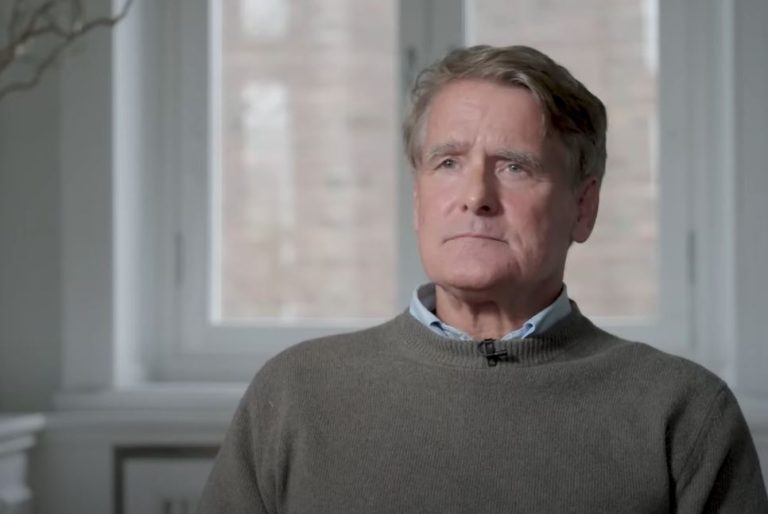In addition to being impressive, Christer Gardell’s estimated net worth of $1.5 billion is earned. He has established himself as one of Europe’s most tenacious and extraordinarily successful activist investors over the last 20 years. He did more than just launch a hedge fund when he and Lars Förberg co-founded Cevian Capital in 2002; he revolutionized the way European boardrooms react to shareholder scrutiny.
Gardell started his career at McKinsey & Company after graduating from the Stockholm School of Economics in 1984 and honing his strategic thinking at London Business School. He developed a particularly acute sense of corporate inefficiency during his eleven years there. Later, that idea would develop into a complete investment philosophy, subtly shattering complacency and bringing accountability to some of the largest companies on the continent.
Christer Gardell Biography and Career Overview
| Detail | Information |
|---|---|
| Full Name | Christer Göran Harald Gardell |
| Date of Birth | December 4, 1960 |
| Age | 64 |
| Place of Birth | Nacka, Sweden |
| Nationality | Swedish |
| Education | Stockholm School of Economics; London Business School (studies) |
| Career Start | McKinsey & Company (1984–1995, Partner) |
| CEO Position | AB Custos (1996–2001) |
| Investment Firm | Co-founder and Managing Partner, Cevian Capital (2002–present) |
| Known For | Activist investing in Volvo, ABB, Ericsson |
| Net Worth (2025) | Estimated $1.5 billion |
| Spouse | Kristina Gardell |
| Children | Not publicly disclosed |
| Current Focus | Active ownership, athlete sponsorships, corporate transformations |
Gardell started experimenting with a private equity mindset in public markets after he was appointed CEO of AB Custos in the late 1990s. Despite being unorthodox at the time, this strategy was remarkably novel. He was actively helping businesses realign their structure and vision for long-term value, not just investing.
He scaled that approach with Cevian Capital. With more than €15 billion in assets managed today, the company is well-established in Germany, the UK, Scandinavia, and other countries. The fund uses a “active ownership” model, which means it actively promotes change rather than waiting for it to happen. This practical method has proven to be incredibly resilient, particularly in uncertain economic times.
Volvo was a particularly advantageous case. The automaker became much more competitive as a result of Cevian’s intervention, which also resulted in leaner governance and sharpened focus. Gardell pushed for ABB to sell off its Power Grids division, which led to a huge value unlock that investors had been waiting for. After Cevian’s involvement, Ericsson experienced significant internal restructuring and a boost in market confidence. These are long-term, strategic upheavals rather than short-term victories.
Gardell’s investments are very effective, which has allowed his fortune to grow steadily. He makes a deep commitment to fewer goals, always with a plan in place, as opposed to distributing funds among dozens of tiny wagers. That focus is reflected in his net worth. Every investment is carefully planned and studied, like a game of chess. Because of this, even when his calls derail the plot, they are frequently taken seriously.
With his startlingly audacious prediction of a possible 95% decline in Tesla’s valuation, Gardell made headlines in recent months. Although these assertions are controversial, they also demonstrate Gardell’s willingness to question prevailing wisdom. His reputation in the financial industry has been shaped by his capacity to see value where others see noise.
Even though his business practices garner attention, he doesn’t spend much time in public. He is a father and married to Kristina Gardell, but he keeps his personal life under wraps. He rarely gives interviews, and when he does, the topic of discussion is always strictly business-related. He is somewhat mysterious—but no less influential—than other billionaire figures because of his reserved manner.
Gardell is subtly causing a stir in Swedish sports outside of the boardroom. He is extending his influence into Sweden’s culture by supporting cross-country ski athletes like Edvin Anger and Jonna Sundling. His backing is more than just monetary; it is a conscious expression of confidence in tenacity, achievement, and patriotism. This transition from financial activism to sports sponsorship demonstrates the nuanced yet significant ways in which wealth can be redirected.
Additionally, his long-term focus distinguishes him from the flamboyant volatility of more recent sectors. While tech unicorns and cryptocurrency whales are the focus of venture capitalists, Gardell’s steady ascent feels particularly grounded. He has created something enduring rather than speculative. Because of his longevity, his net worth is more than just a number; it represents stability in a time of uncertainty.
Despite its past controversy, activist investing has gained popularity again, especially in Europe. Passive investment frequently falls short of holding businesses accountable, and traditional models are being reexamined. Given the growing pressure on corporations to strike a balance between governance, profit, and environmental concerns, Gardell’s strategy is particularly pertinent today. Cevian provides a strikingly successful substitute for laissez-faire tactics by intervening and actively directing management.
Gardell is still well-established in European financial circles going forward. Despite being discreet, he has a significant impact on corporate decision-making, market trends, and policy. Tens of thousands of jobs, shareholder returns, and even the course of the national economy are all impacted by his choices.


